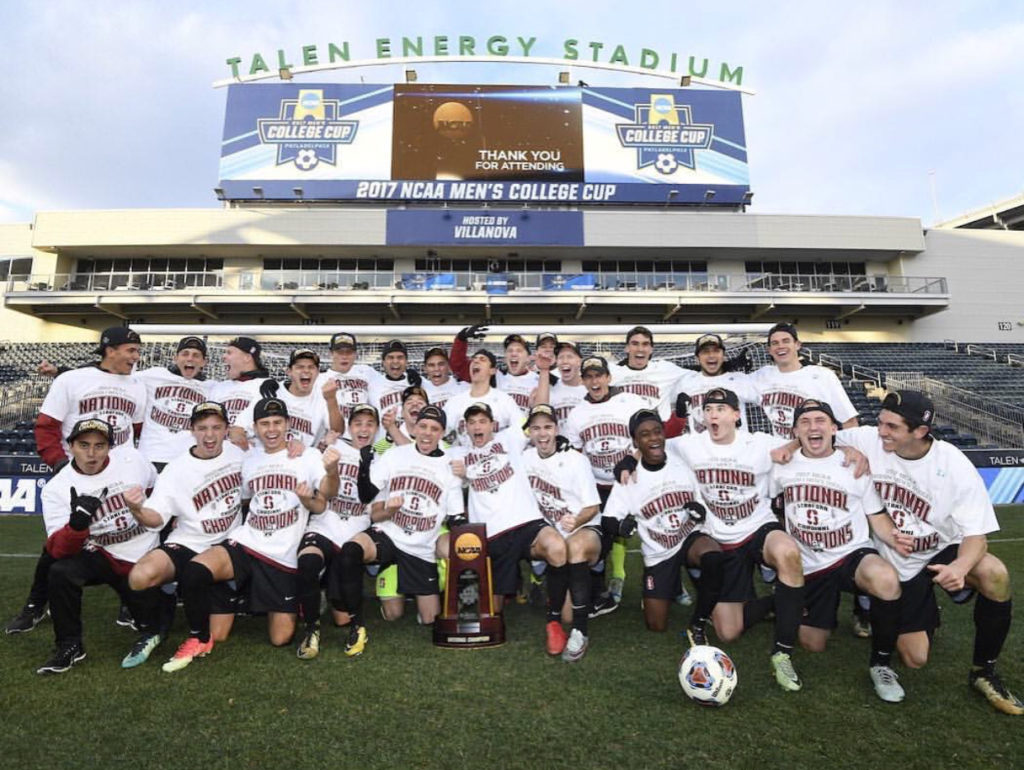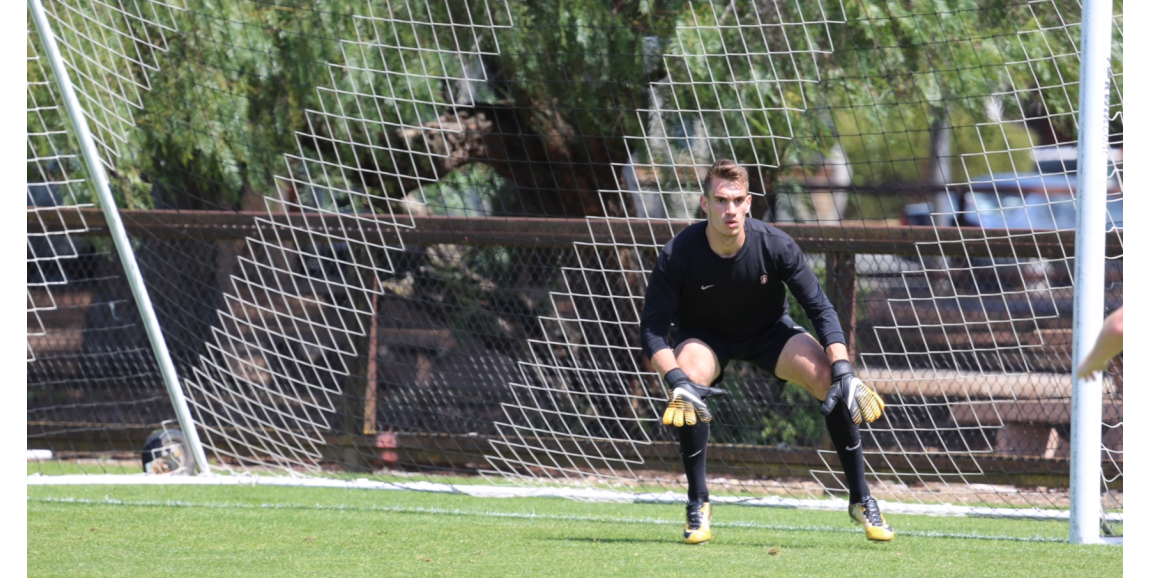Eduardo Palacios Fabre just wrapped up his master's degree in Epidemiology and Clinical Research and is now working on research at Stanford to prepare for medical school. You may also spot him on the soccer field: he was a goalkeeper on the Stanford men's soccer team roster.
I spoke with him to learn more:
Has soccer always been a big part of your life?
I grew up in Madrid, Spain where soccer (or, fútbol) is basically a religion. I first started playing as a goalie because my brother was a striker and I enjoyed diving and taking on a different role from the other players. I was scouted by Hawaii Pacific University to play soccer. I was able to play for the team and study at the same time, which was very important to me and something that had been difficult to find back home.
Then, when I decided to pursue my master's and was selected for the Stanford men's soccer team, it was great. Stanford has a lot of resources, and a lot of people that want to see you succeed, so it all worked out in this rare yet fantastic way.
What is your favorite memory being on the Stanford men's team?
The best memory I have is wining the national championship in Philadelphia in 2017. We had a team that was very well rounded and connected, I was lucky to be part of it.

How did you get interested in science and medicine?
My father was in construction and mechanics, and my mom was a teacher with a PhD in chemistry, so engineering and science have always been a big part of my life. Personally, I've always felt very curious about how organisms work.
This turned into a passion when, several years ago, my brother had a terrible ACL injury. I saw how the life of someone super dedicated to sports changed in a matter of seconds. He was never able to come back to play due to the severity of that type of injury. Ever since, I became interested in medicine and specifically sports medicine.
What are you working on today?
I'm collaborating with some Stanford orthopedic surgeons on a research project related to the opioid crisis. We are trying to analyze how the way we ask about pain influences the amount of opioid medication patients receive post surgery.
I'm also volunteering at the Arbor Free Clinic as a Spanish clinical translator for patients that are uninsured and in need of medical attention.
What are your thoughts on the differences between Spain and the U.S.?
I definitely miss home, but I came here for the right reasons to pursue the sport and the field of medicine that I love. I have always wanted to come to California -- the Mediterranean climate and the mild winters definitely remind me of home. I also like the fact that California is a very healthy state.
One of the things I like about America is how driven people are for success and how things get done, as well as the amount of opportunity that you can encounter if you are ready to work hard. People at Stanford want to make a difference in the world and are very passionate about what they dedicate their lives to.
However, one of the things I miss about Europe is that there's more of an emphasis on spending time out with your friends and family.
What are you listening to now and why?
I love Kygo, Arizona, and deep house in general. I'm really into the music because my brother became a DJ after moving on from soccer.
What are your favorite hobbies?
I like going hiking and being in nature. I recently got a German Shepherd so we have been going out to different hikes in the area.
What is your ultimate career goal?
I'm hoping to be an orthopedic surgeon in the future. One of the things I've been thinking about and hope to address in my practice is trying to prevent the unnecessarily high amount of sports injuries that occur, especially in early adolescents. I think a lot of it can be prevented, but in the current landscape, coaches and players aren't well informed or trained in exercise physiology, human anatomy, and injury prevention.
Photos courtesy of Eduardo Palacios Fabre and Stanford men's soccer (John Cantalupi)




